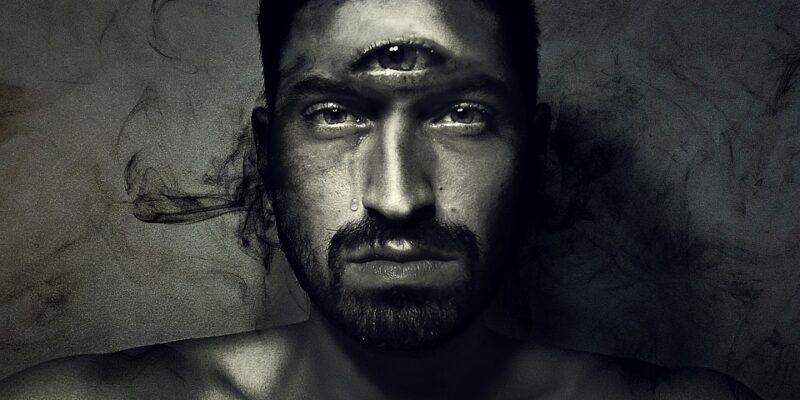The History and Origins of Wizards
Wizards have long been a fascinating and mysterious figure in folklore and popular culture. From casting spells to brewing potions, these magical beings have captured the imaginations of people for centuries. But where did the concept of wizards come from, and how have they evolved over time?
Ancient Beginnings
The origins of wizards can be traced back to ancient civilizations, where shamans and seers played important roles in society. These wise individuals were believed to have the ability to communicate with spirits and divine the future, making them valuable advisors and healers. In Mesopotamia, for example, priests known as “ummanu” were consulted for their knowledge of the supernatural.
Similarly, in ancient Egypt, the “khery-heb” served as intermediaries between the gods and humans, performing rituals and magic to maintain the balance of the universe. These early practitioners of magic laid the groundwork for the wizard figure that would later appear in European folklore.
The Middle Ages
During the Middle Ages, belief in magic and the supernatural was widespread, leading to the rise of the wizard as a distinct archetype. In Christian Europe, wizards were often depicted as sinister figures in league with demonic forces, using their powers to harm others and disrupt the order of society.
One of the most famous examples of a medieval wizard is Merlin, the advisor to King Arthur in Arthurian legend. Merlin was said to possess extraordinary powers of prophecy and transformation, using his magic to guide and protect the kingdom of Camelot. His character has since become a symbol of wisdom and mysticism in popular culture.
The Renaissance and the Enlightenment
During the Renaissance, interest in magic and the occult was revived, leading to a renewed fascination with wizards and alchemists. Figures such as Paracelsus and John Dee gained fame for their experiments in alchemy and astrology, attracting the attention of intellectuals and nobles alike.
At the same time, the Enlightenment brought a more rational and skeptical approach to the study of magic and the supernatural. The figure of the wizard began to be seen as a relic of a superstitious past, replaced by the scientific advancements of the age.
Modern Wizards
Despite the decline of belief in magic, the image of the wizard continued to captivate the public imagination in the modern era. In literature, wizards such as Gandalf from J.R.R. Tolkien’s “Lord of the Rings” and Dumbledore from J.K. Rowling’s “Harry Potter” series have become iconic figures, representing wisdom, power, and the struggle between good and evil.
Today, wizards are a staple of popular culture, appearing in books, movies, and video games in a variety of forms. From the wise mentor to the malevolent sorcerer, the wizard remains a versatile and enduring figure in fantasy storytelling.
The Evolution of Wizardry
As the concept of wizards has evolved over time, so too has the practice of wizardry itself. In ancient times, wizards were often revered for their abilities to communicate with the spirit world and perform rituals to manipulate the natural elements. Today, wizardry is often associated with the casting of spells and the use of magical potions and charms.
Magical Practices
Throughout history, various magical practices have been associated with wizards, including divination, necromancy, and alchemy. Divination involves the use of rituals and tools to foretell the future, while necromancy involves communicating with the dead to gain knowledge or power.
Alchemy, on the other hand, is the practice of transforming base metals into gold and creating elixirs of immortality. These practices were believed to harness the natural forces of the universe to achieve supernatural effects, making wizards powerful and mysterious figures in the eyes of the public.
Modern Wizardry
In modern times, the practice of wizardry has evolved into a blend of ancient traditions and contemporary beliefs. While some people still study ancient magical texts and perform rituals to tap into their mystical abilities, others have adapted wizardry to fit a more secular and scientific worldview.
Modern wizards may use technology and psychology to create the illusion of magic, performing tricks and illusions that appear to defy the laws of nature. This type of wizardry is often associated with stage magicians and performers who use sleight of hand and misdirection to entertain and mystify audiences.
The Future of Wizardry
As our understanding of science and technology continues to advance, the practice of wizardry is likely to undergo further changes. While the image of the wise old wizard casting spells may remain a popular trope in fiction and folklore, the reality of wizardry in the modern world is likely to be more nuanced and complex.
It is possible that new forms of wizardry will emerge, blending ancient traditions with cutting-edge research in fields such as neuroscience and quantum physics. The future of wizardry may hold exciting possibilities for those who seek to explore the boundaries of human consciousness and unlock the secrets of the universe.
In conclusion, the history and origins of wizards are a rich and fascinating topic that spans centuries of human civilization. From ancient shamans and seers to modern stage magicians and fantasy characters, the image of the wizard continues to captivate and inspire people around the world. Whether casting spells or performing illusions, wizards embody the timeless appeal of magic and mystery in our collective imagination.
